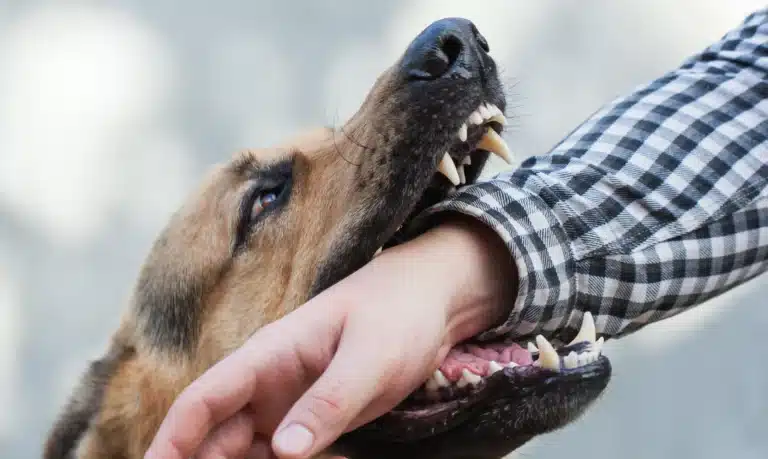Factors Influencing Dog Bite Lawsuit Amounts
Understanding the Factors Influencing Dog Bite Lawsuit Amounts in Florida
Dog ownership brings joy and companionship, but it also comes with responsibilities. One crucial responsibility is ensuring your pet does not harm others. If an unfortunate incident occurs where your dog injures someone, you could find yourself defending a dog bite lawsuit. Understanding the factors influencing lawsuit amounts can help you navigate this complex situation.
Owning a dog is often seen as a rewarding experience, a guardian of the household, and a loyal friend, contributing to the joy of many families. However, this relationship carries significant responsibilities, especially regarding the safety of others. In Florida, dog bite incidents can lead to substantial legal consequences, and understanding these can aid dog owners in managing the risks involved. This detailed examination beyond the preliminary understanding of influencing factors serves as a guide for those navigating potential legal challenges when faced with a dog bite incident.
Florida, renowned for its diverse population and vibrant neighborhoods, sees a fair share of dog bite incidents annually. As such, understanding the components that determine the potential compensation amount becomes imperative for responsible dog owners. This comprehensive guide sheds light on the nuances that impact these dog bite lawsuit amounts.
Key Factors Influencing Settlement Amounts
1. Severity of Injuries
Severity is often the first aspect assessed in such cases. Whether the dog bite injury involves puncture wounds, nerve damage, or a more severe impact, the potential lawsuit figure generally escalates with the injury’s seriousness.
- Minor injuries include simple bruising or surface-level cuts, typically resulting in lower compensation.
- Moderate injuries can involve ligament damage or deep lacerations, requiring medical intervention.
- Severe injuries, such as disfigurement or nerve damage, necessitate comprehensive medical care and lead to substantial legal claims.
The severity of injuries not only affects the immediate health of the victim but can also have lasting implications, influencing both physical wellbeing and psychological state. In cases where severe injuries occur, long-term effects such as reduced mobility or lasting scarring may be considered when determining compensation.
2. Medical Costs
Medical expenses incurred from a dog bite incident encompass everything from emergency room visits to long-term rehabilitation. Detailed documentation of all medical treatments is crucial to the lawsuit.
Medical costs are not limited to initial treatment. Follow-up visits, ongoing therapy, and any future medical expenses anticipated due to permanent damage should also be accounted for. From an economic standpoint, these costs form the backbone of the financial claim.
3. Lost Wages
Victims often find themselves unable to work following the incident, especially in severe cases. Compensation calculations will factor in the individual’s wage rate, the duration of their inability to work, and their capacity to return to their occupation.
In many instances, lost wages go beyond what the injured party would earn hourly or monthly; it encapsulates the loss of potential earnings in the future, especially if the injury leads to a permanent disability. Hence, the victim’s age, career trajectory, and previous earnings are critical factors in determining lost wages.
Legal Factors to Consider
1. Florida’s Strict Liability Law
Strict liability laws play a pivotal role in dog bite litigations. Under these statutes, a dog owner can be held responsible for injuries irrespective of their prior knowledge of the dog’s aggression. This approach frames the legal argument, often easing the injured party’s ability to seek redress.
Strict liability means that no defense of precautionary measures exempt the dog owner from liability. Adapting to this rule can be challenging, as it shifts the focus from the dog’s history to the nature of the incident.
2. Negligence
If the context involves the provocation of the dog or if the injured party was trespassing, the claim amount can be adjusted. Demonstrating reckless or negligent behavior by the injured party can significantly alter the financial demands.
Legal defenses in dog bite cases often circle around notions of negligence and comparative fault. Documenting circumstantial evidence—even simple elements such as signage indicating the presence of a dog—can present a robust defense strategy.
3. Insurance Coverage
Homeowners’ and renters’ insurance policies often play a crucial role in dog bite lawsuit defense. Dog bite insurance policies typically include personal liability coverage that extends to dog-related incidents, both on and off the property. However, the extent of protection can vary significantly between insurers and individual policies. Coverage limits, which commonly range from $100,000 to $300,000, may prove insufficient in severe cases where medical expenses and legal fees escalate quickly. Additionally, many policies have breed-specific exclusions or higher premiums for dogs deemed high-risk, such as pit bulls or Rottweilers. A dog’s bite history can also impact coverage, with many insurers refusing to cover dogs with prior incidents.
Understanding the nuances of one’s insurance policy is essential for dog owners. Most policies include a “duty to defend” clause, providing legal representation in case of a lawsuit. However, if damages exceed policy limits, dog owners may be personally liable for the remaining amount. This is why some opt for umbrella policies or higher coverage limits. It’s also important to note that insurance companies often prefer settling out of court to avoid costly litigation. For those unable to secure standard coverage, specialized canine liability insurance policies are available. Given these complexities, dog owners should consider the following:
- Regularly review and understand policy details, including coverage limits, exclusions, and any breed-specific restrictions
- Consider additional protection like umbrella policies or specialized canine liability insurance
- Promptly notify the insurance company in the event of an incident and follow their guidance closely
Mitigating Lawsuit Risks
Being proactive as a responsible dog owner can mitigate incidents and potential lawsuits:
- Regular Training: Dogs should be well-trained and socialized to discourage aggressive behaviors. Regular obedience classes and social interactions with other pets are instrumental in shaping a balanced temperament.
- Secure Environment: Secure premises with appropriate fencing and advisory signage warn visitors and deter potential provocation. Each state and locality has different requirements, and adhering to local ordinances is key.
- Leash Laws: Compliance with local leash laws can prevent your dog from unsupervised interactions that could lead to legal action. Even in off-leash areas, maintaining control is vital.
Understanding the factors that influence lawsuit amounts if your dog injures someone in Florida is essential for all dog owners. By staying informed and proactive, you can better protect yourself legally and financially while fostering a safer environment for your community. Remember, safety and responsibility go hand in hand with dog ownership. Moreover, proactive measures in training, insuring, and understanding legal obligations not only mitigate risks but enrich the bond between you and your pet.






